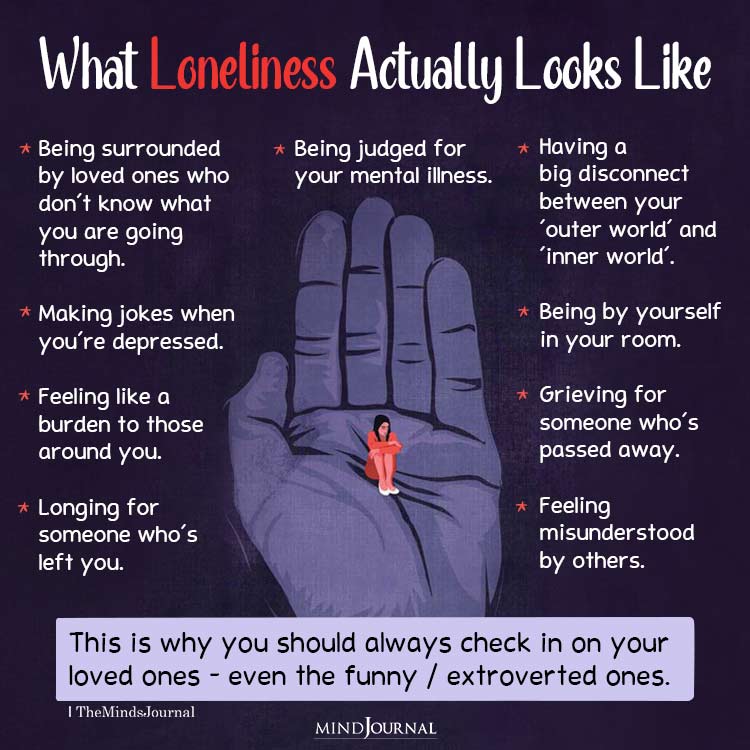New research reveals a concerning correlation between loneliness and early death, emphasizing the alarming psychological impact of social isolation on individuals, according to a recent study.

Read more here Loneliness Hurts Mens Mental Health As Well As Bone Health, New Research Suggests
New Research Highlights The Psychological Impact Of Social Isolation On Health Outcomes
A groundbreaking study published in the journal Nature Human Behaviour has shed light on the significant health risks associated with loneliness or social isolation.
The findings reveal that individuals who experience social isolation face a 32% higher risk of premature death from any cause, while those who report feeling lonely are 14% more likely to die early.
The study, which conducted a comprehensive meta-analysis of 90 studies involving over 2 million adults, underscores the urgent need to address the psychological impact of social isolation on overall well-being.
Previous research on the subject has yielded mixed and controversial results, often limited to specific groups or regions.
However, this new study, led by esteemed researchers from various institutions, offers a comprehensive analysis that encompasses a diverse range of participants followed for periods ranging from six months to 25 years.
The study distinguishes between social isolation and loneliness, highlighting their distinct but interconnected nature.
Read more here Is AI Better At Predicting Cancer Risk? New Study Suggests Promising Results
Social isolation refers to a lack of objective contact with others, including having a limited social network or living alone.
Loneliness, on the other hand, is the subjective distress individuals experience when their actual social relationships fall short of their desired quality.
The consequences of social isolation and loneliness extend far beyond mental health implications. The study reveals that these conditions can be considered forms of chronic stress, potentially triggering adverse effects on the body.
Stress hormones associated with long-term loneliness and isolation may negatively impact overall health and contribute to premature mortality.
Moreover, the research demonstrates the significance of these factors in the context of cardiovascular disease and cancer.
Socially isolated individuals with pre-existing cardiovascular disease face a higher risk of early death, while breast cancer patients who experience social isolation also have an increased likelihood of dying from the disease.
The study’s authors emphasize that lifestyle behaviors can mediate the relationship between social isolation, loneliness, and premature death.
Unhealthy habits such as smoking, alcohol use, poor diet, and lack of exercise are more prevalent among individuals who feel socially isolated or lonely.
Consequently, interventions targeting these lifestyle factors may prove effective in mitigating the risks associated with social isolation.
One key aspect highlighted by the study is the need for individuals to actively seek social support when experiencing loneliness.
Experts suggest that maintaining a robust social network should be treated as a health-promoting activity akin to exercise or a balanced diet.
Read more here: Food For Mental Health: 10 Foods That Can Help Boost Your Mood And Reduce Stress
Initiating conversations beyond holiday greetings, engaging in activities that expose individuals to new circles of like-minded people, and prioritizing social connections are crucial steps in combatting the negative effects of isolation.
In light of these findings, public health strategies are urgently required to address the pressing issue of loneliness and social isolation.
Raising awareness about the psychological impact of social isolation is paramount, as is the development of interventions with the involvement of family members and community networks.
Furthermore, healthcare systems should implement methods to identify social isolation and loneliness among patients, enabling appropriate support and intervention from healthcare professionals.
As this research deepens our understanding of the detrimental effects of social isolation and loneliness, it paves the way for effective interventions to improve overall well-being and combat premature mortality.
By recognizing the psychological impact of social isolation and taking proactive measures to foster social connections, individuals can enhance their quality of life and potentially extend their lifespan.
In a society increasingly marked by isolation, it is high time we acknowledge the significance of human connection and prioritizes building meaningful relationships that promote both mental and physical health.









Leave a Reply
You must be logged in to post a comment.